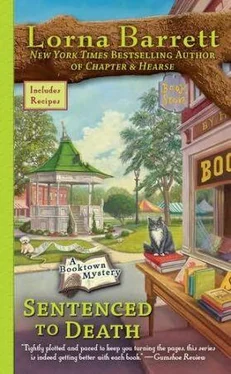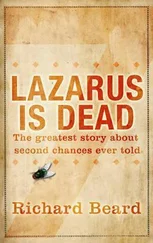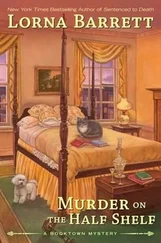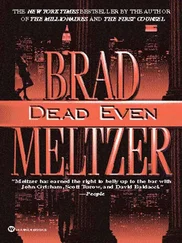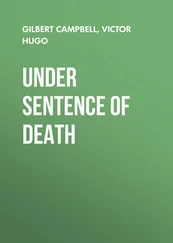It had been two years since Angelica had relocated to New Hampshire, and Tricia still couldn’t get over the fact her sister felt comfortable with Stoneham’s small-town charm. And of late, she’d spent nearly all her off time working on the new cookbook. Too much time. Despite the friction the night before, Tricia had missed their regular gab fests.
Angelica glanced at her watch. “What’s taking so long? Shouldn’t they have started the service by now?”
An impassive Mr. Baker still stood on the sidelines. Tricia crossed the room to join him. “Mr. Baker, when is the service supposed to start?”
Baker frowned and looked uncomfortable. “I’m afraid there is no formal service scheduled. Mr. Black decided against it. He thought a gathering of friends would be adequate.”
Tricia gaped at the man, whose disapproving gaze seemed to be riveted on David Black and the gallery owner. Tricia shook herself, and managed a shaky “Thank you” before turning to rejoin Angelica. “There’s no service. This is it.”
“This is what?”
“A gathering,” Tricia explained.
“What idiot came up with that bright idea?” Angelica asked.
“David.”
Angelica glanced at her watch again. “I need to go.”
“But I’m not ready.”
“That’s okay. I’ve got my umbrella. I won’t melt. I’ll call you later about tonight.”
“But, Ange—”
There was no stopping Angelica once she’d made up her mind about something. Tricia watched as her sister said good-bye to Elizabeth and then headed toward the exit.
David had finally extricated himself from the gallery owner and was speaking with Russ Smith, who bore an expression of surprise. No doubt David had just told him there’d be no ceremony.
Tricia marched across the room to stand before David. He didn’t even acknowledge her. “I’m not paying for anything formal. If you want to run an obituary, that’s up to you,” he told Russ.
Tricia tapped David’s shoulder. He finally turned. “I can’t believe it. I can’t believe how little regard you seem to feel for your poor dead wife. This”—she waved her hand at the room at large—“is not what Deborah would have wanted.”
“And how would you know?” David challenged. “You were friends with her for what—two years?”
“Almost three,” Tricia said, bending the truth just a little. It was more like two and a half years.
“Well, I was married to her for six years—and knew her for two years before that. I think I knew my wife much better than you did.”
“Not the way she spoke.”
David’s head snapped up, his eyes blazing. “The subject is closed.” He gestured toward the door. “Now, if you don’t mind.”
Several other mourners were obviously eavesdropping, but Tricia was so angry that she didn’t care. She leaned closer and kept her voice low. “But I do mind. If I didn’t know better, David, I’d say everything you’ve done for the past few days screams involvement in Deborah’s death.”
David’s eyes grew even wider. “Get out.”
Tricia met his gaze. “Gladly.”
From her perch behind the cash desk, Miss Marple glared at the rain that continued to beat against Haven’t Got a Clue’s front display window. “Yow,” she said in what sounded like annoyance.
Tricia, sitting on a stool below the cat, looked up from the book she’d been trying to read. “You said it,” she agreed. Movement to her right caught her attention. Someone at the door was closing an umbrella. The door opened and a figure stepped inside and pulled off the hood of a yellow slicker. “Feels more like November than August,” Ginny said, and wiped her feet on the bristle welcome mat.
“Good morning,” Tricia said, grabbed a bookmark, and closed the copy of Ellery Queens’s Double, Double , setting it beside the newspaper she hadn’t yet had time to finish reading. “Although by the looks of the weather, we might not have many customers today.”
“The perfect time to seek out a nice cozy murder mystery, sit down with a cup of cocoa, and put your feet up. Sounds like heaven.”
“To me, too.”
“Speaking of heaven, how did Deborah’s service go? You’re back a lot earlier than I would’ve thought. I was going to try to make it, and then . . .” She let the sentence hang, and sighed. “I didn’t want it to look like I was too eager to take over her store. You know, gloat over the body and everything.”
“There was no body,” Tricia said, and picked a gray cat hair from her black sweater. Since the day was so gloomy, she hadn’t bothered to change out of her mourning attire. “There was no service. What is it with this town that people keep deciding there’s no need for the rituals surrounding death?” she asked. “First Jim Roth, now Deborah.”
“What?” Ginny asked, aghast, and struggled out of the sleeves of her still-dripping slicker.
Tricia crossed her arms. “David Black decided not to hold a ceremony. He thought a gathering would be enough. The cheapskate isn’t even going to spring for a paid death notice in the Stoneham Weekly News . And worse—worst of all—he showed up to the funeral home with another woman in tow.”
Ginny’s mouth dropped. “A date? You’re kidding!”
“No, I’m not. She was older than him, too. Angelica says she owns an art gallery in Portsmouth.”
“Angelica certainly gets around,” Ginny said, and headed toward the back of the store to hang up her jacket.
Tricia shrugged off the comment and then let out an exasperated breath. “What do you know about David Black’s sculptures?” she called.
Ginny returned to the front of the store. She tucked a loose strand of her hair behind her left ear. “I saw some of them on display last month on the Milford oval. It was some kind of local starving artists’ display. Antonio wanted to see if he could find some local paintings to decorate the Brookview Inn.”
“I heard David’s sculptures are rusty and ugly.”
Ginny crossed her arms, rubbing them for warmth. “Rusty and rustic. I guess it’s an acquired taste.”
“Did he sell much?”
“I have no idea. We came late to the sale. In fact, most of the artists were already packing up. Antonio got a couple of paintings for a reduced price simply because the artists didn’t want to drag them home.”
“Shrewd businessman,” Tricia said flatly.
Ginny nodded at the newspaper on the cash desk. “Did you read the article about the pilot who crashed the plane?”
Tricia looked up sharply. “No.” Ginny made a dive for the paper, but Tricia beat her to it. “Where is it?”
“Inside the front section.”
Tricia thumbed through the paper until she found an article at the bottom of page four. She scanned it, but it really didn’t say anything she didn’t already know—except for Monty Capshaw’s address. She pursed her lips, thinking . . .
Ginny struck a pose, plastering her splayed fingers to her forehead, threw her head back, and squinted at the ceiling. “I predict you’re going on a very short journey. To Milford. To Olive Road. Where you will visit Elaine Capshaw and talk about the death of her husband and your dear friend Deborah.”
Tricia leveled an icy stare at Ginny. “That’s not funny, Ginny.”
Ginny laughed. “You may call me Madam Zola.”
Tricia carefully refolded the newspaper. “As it happens, I have a lunch date. Would you mind watching the store?”
“Not at all,” Ginny said.
“Not only that,” Tricia said, “but Angelica and I have an appointment later this afternoon. Do you think you could close for me?”
Ginny’s eyes widened. “I’d be very happy to do so. I just need—”
Читать дальше
